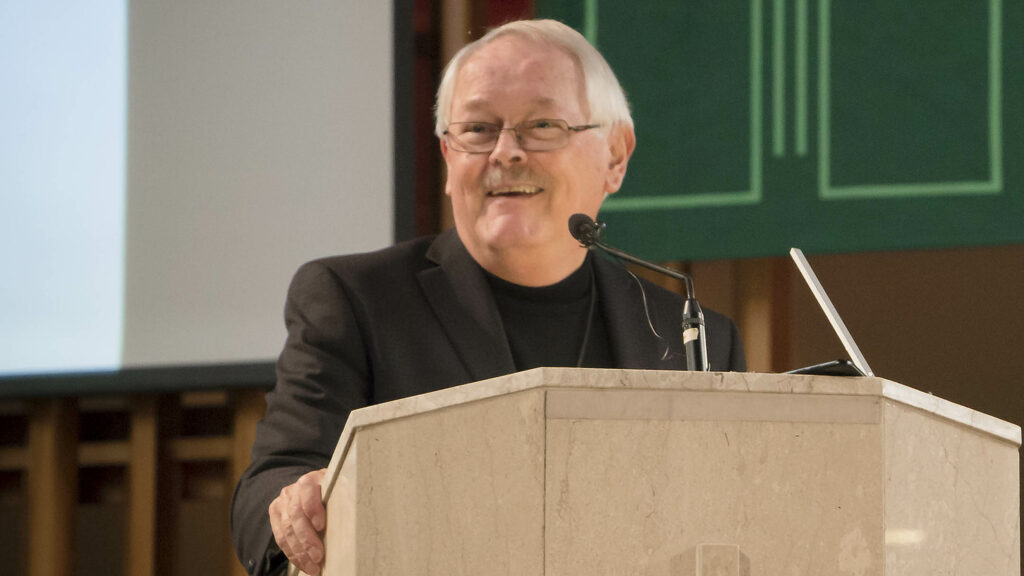We have many photographs of Therese of Lisieux. Her sister Celine loved using a camera and took many photos of Therese, but there’s an interesting thing to note in those photos. The British Carmelite Ruth Burrows once did a study of those photos and commented that in all of them, Therese is always somehow alone, by herself, even when in a group photo.
Here’s the anomaly. Therese was a warm, friendly person with good social skills, who was loved by many. Yet in almost all the photographs of her, even when she is pictured together with family members whom she loved deeply, there is always a certain loneliness, an aloneness, that’s evident. However, the loneliness she exhibits there is not the aloneness of someone at odds with family and community, but a certain distance of soul, something that might be termed moral loneliness. What is this? Can our souls be lonely even while we are bathed in friendship, love, and family?
Yes, that’s true for all of us, was true for Therese of Lisieux, and was true for Jesus.
Looking at the Gospel narratives that describe Jesus’ passion and death, we see that what they emphasize in not Jesus’ physical suffering. While those sufferings must have been horrific, the gospels never dwell on them. What they highlight is Jesus’ emotional suffering, his aloneness, his loneliness of soul as he endured his suffering and death. They point out how, in his neediest hour, while alone, abandoned, betrayed, misunderstood, humiliated, and in effect unanimity-minus-one, he was suffering more in soul than in body.
Luke’s Gospel tells us that his agony took place in a garden. This too is revealing. Jesus had agonies elsewhere, in the temple, in the desert, and in his hometown, but his most searing one took place in a garden. Why a garden? As we know, in archetypal literature, gardens are not for growing vegetables, but for delight. The archetypal garden is the mythical place of delight, where lovers meet, where friends drink wine together, and where Adam and Eve were naked, innocent, and didn’t know it. The Jesus who sweats blood in the garden of Gethsemane is not Jesus the Teacher, Jesus the Magus, Jesus the Healer, or Jesus the Miracle-worker. In the garden, he is Jesus the Lover, the one who delights in love and who suffers in love – and it’s to this garden of suffering, intimacy, and delight to which he calls us.
The gospels emphasize that what Jesus suffered most deeply in his crucifixion was not the pain of being scourged and having nails driven through his hands, but a deep loneliness of soul that dwarfs even the most intense physical pain. Jesus wasn’t a physical athlete, but a moral one, doing battle in the arena with soul.
What’s moral loneliness?
I first encountered this term in the writings of Robert Coles, who used it to describe Simone Weil. What it suggests is that inside each of us there’s a deep place, a virginal center, where all that’s tender, sacred, cherished, and precious is held and guarded. It’s there that we are most genuinely ourselves, most genuinely sincere, most genuinely innocent. It’s where we unconsciously remember that once, long before consciousness, we were caressed by hands far gentler than our own. It’s where we still sense the primordial kiss of God.
In this place, more than any other, we fear harshness, disrespect, being shamed, ridiculed, violated, lied to. In this place we are deeply vulnerable and so we are scrupulously careful as to whom we admit into this space, even as our deepest longing is precisely for someone to share that place with us. More than we yearn for someone to sleep with sexually, we yearn for someone to sleep with there, morally, a soulmate. Our deepest yearning is for moral consummation.
But this isn’t easy to find. Rare is the perfect moral partner, even inside of a good marriage or friendship. And so we perennially face a double temptation: Resolve the tension by settling for certain compensations, tonics, that help us make it through the night or, perhaps worse, because the pain is too much to live with, giving ourselves over to bitterness, anger, and cynicism, thus denigrating the great dream. Either way, we sell ourselves short and settle for second best.
What’s to be learned from Jesus’ struggle with moral loneliness? This: he refused both the road of compensatory tonics and that of soul-hardening cynicism. He stayed the course and carried the tension to term.
Our own moral loneliness can be tyrannical. However, that’s not a license or invitation to begin jettisoning commitments, responsibilities, morals, and whatever else it takes to try to find that elusive soulmate for whom we yearn so deeply. What Jesus (and persons like Therese of Lisieux and Simone Weil) model is how to carry that tension ideally, how to carry our solitude at a high level, and how to resist, no matter the pain, calling second-best by any other name than second-best.

